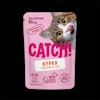
When the Food and Drug Administration (FDA) announced at the end of 2022, in stealth mode, that it was ending formal and regular updates on the investigation into grain-free pet foods and canine dilated cardiomyopathy (DCM), I don’t think anyone believed this sordid saga was truly over. I didn’t, and commented that I hoped if anything good at all came from the mess of a situation, it would be ongoing research on DCM and its many causes, because obviously, many dogs and their owners have been significantly affected. Not to mention many pet food brands, retailers and veterinarians.
I guess it was almost inevitable that, along with more studies, we’d also eventually see lawsuits. Pet food has increasingly become a target for litigation, especially class-action lawsuits, and this situation seemed ripe.
Thus, last week’s announcement of a US$2.6 billion lawsuit, filed on February 6, 2024, against Hill’s Pet Nutrition; its research foundations, the Morris Animal Foundation and Mark Morris Institute; and a group of veterinary researchers wasn’t necessarily a surprise. But, as with so many elements of the DCM investigation, it left me puzzled and scratching my head.
DCM research factors
Class-action lawsuits typically go after deep pockets, so Hill’s being targeted in this one isn’t surprising, either; a division of the Colgate Palmolive conglomerate, Hill’s is the third largest pet food company in the world, according to the Petfood Industry Top Pet Food Companies Database.
Yet I’m not sure I understand why Hill’s has been singled out. Not that I’m advocating or wishing for other pet food companies to be sued, but the focus on Hill’s in this case — it’s even named “KetoNatural Pet Foods vs. Hill’s Pet Nutrition” — doesn’t seem to hold up for a couple of reasons.
A press release from the law firm filing the case reads: “The suit alleges that the FDA’s DCM investigation was fraudulently induced by Hill’s-affiliated veterinarians at Tufts University and other major research institutions, all of which have received extensive funding from Hill's-affiliated entities. The veterinarians allegedly caused the FDA to take drastic action by flooding the agency with hundreds of DCM case reports that were intentionally chosen to overrepresent the commonality of grain-free diets among dogs suffering from the disease.”
While that last sentence may have some elements of truth, the fact is that the veterinarians in question haven’t only worked with Hill’s; most have also received funding from other pet food companies like Nestle Purina and Royal Canin (a division of Mars). In fact, Purina funded a study at Tufts in 2021 on DCM and diet. At the same time, Hill’s has partnered with other entities besides veterinary researchers on DCM-related studies, including one on canine DNA that had nothing to do with dog food.
It's also worth noting that the funding of veterinary research studies by all three of the largest pet food companies is a function of the market and system, and not just because these companies develop and sell therapeutic diets through the veterinary channel. It’s also because, like it or not, that’s about the only source of funding available for such research. In the U.S., there is no federal (and hardly any state) source of research funding for companion animal research. Academic researchers can sometimes apply for and receive grants, but most money for research comes from the industry, either pet food manufacturers or suppliers.
Hill’s dog foods implicated in DCM complaints
The other reason that the singular focus on Hill’s doesn’t hold up is that it also develops and sells grain-free pet foods and did before the DCM investigation began in 2018, just like KetoNatural and similar companies allegedly harmed by the investigation. In fact, Hill’s products appeared on the list of complaints submitted to FDA regarding DCM cases, even if it wasn’t one of the most-named brands the agency announced in 2019 and wasn’t necessarily known in the marketplace for a grain-free product strategy. It’s difficult to believe that the company “stoked the panic by making false statements about the scientific evidence surrounding DCM,” as the press release claims, when its own products were implicated.
I’m not so naïve or idealistic that I believe companies, especially large corporations, never engage in underhanded business practices for their own gain, but it just doesn’t make sense that a company like Hill’s, one of the oldest and longest-tenured in the market, would risk its reputation and standing by undertaking some of the conspiracy-theory-type activities listed in the lawsuit.
The pet food market is big enough, dynamic enough and robust enough for all types of products and companies to succeed and thrive. To make it in the marketplace, a large company like Hill’s doesn’t need to resort to carrying out “a scheme to falsely convince American dog owners that a massive, unrelated and hugely diverse group of dog food products — essentially any product made by any of the hundreds of independent firms that were collectively eroding Hill’s market share — all increase the risk and severity” of DCM, as the lawsuit states. Nor should a small company with unique products like KetoNatural have to resort to filing a massive class-action lawsuit.



















